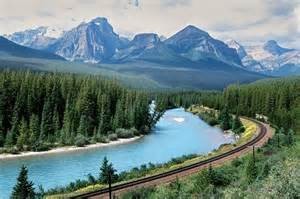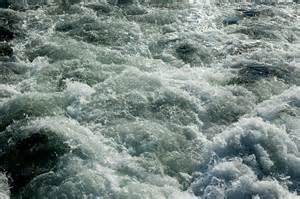
THE I E 0 ASSESSMENT MODEL
Astin, A. & Antonio, A. (2012) “A Conceptual Model of Assessment”Assessment for Excellence: The Philosophy and Practice of Assessment in Higher Education. Plymouth, UK: Rowman & Littlefield, Publishing Group. (p. 17-41).
pg 19. “Outcomes, of course, refers to the ” talent s” we are trying to develop in our educational program ; inputs refers to those personal qualities the student brings
initially to the educational program (including the student’s initial level of developed
talent at the time of entry); and the environment refers to the student’ s
actual experiences during the educational program.”
One of my Inputs would be my evolving credo, this is my latest draft:
June 19, 2015
Imaginative Education Credo:
The Natural Environment:
It is important to build strong relationships and respect for the natural world because we are part of it and rely on the health of ecosystems.
The natural world is seen as an inspiration and place to awaken the senses. A place for making connections and gaining knowledge through observation, immersion, and experimentation.
Teaching in the natural world begins with awareness and then the realization of our belonging. After this initiation then we can move towards stewardship and eventually transferring of the learning to others. This is about building of knowledge and connections. It could also link to comfort zones in that as one gains more knowledge and experience they are able to expand their comfort zone. It does not make sense to say “Ok everyone lets go out and plant some trees to save the river” without the front loading and building up of connections and knowledge. We should start with the ‘what’ to the ‘where’ to the ‘why’ and ‘now what’.
Follow the place-based learning pedagogy by beginning with the awareness and connections close by. It is important to emphasis learning about our local surroundings first before branching further. If we have a local connection then we will be more prone to take care of our communities.
I believe in the philosophy of deep ecology and how we are actually part of nature and need to be sensitive and respectful of that. We need to move away from our dominant anthropocentrism. To me this also relates to Buddhism in the aspect of Karma and dependent origination.
The Relationships:
Emphasis is on a safe environment for learning. This takes into account of all peoples’ social, emotional, physical, and mental wellbeing. Once everyone feels safe than they are able to take risks and learn from their mistakes.
I believe that it is important to be a compassionate, responsible, humble, and a knowledgeable role-model with a lifetime love for learning.
Collaboration is seen as a better way to see different perspectives and enhance the learning.
Learning comes from all around in a relational environment in that it is less of a hierarchical process. The teacher is more of a facilitator and mentor. There is a balance. Hierarchy is still important for the trusting relationship with students- the students need to feel that the teacher will ultimately be in charge. However, when we reduce the hierarchy it gives students more ownership and responsibility.
I want to emphasize that teachers have a great deal to learn from and together with their students. Sometimes children have a different awareness and their senses are more in tune because they are seeing things for the first time when adults tend to block things out as if they have seen them so many times. There needs to be less of the idea that “the teacher knows all” and more of the fact that learning comes from everyone and everything.
It is important to build a climate of trust between educators, students and the community by setting clear expectations, being sensitive to each other, and provide opportunities to take on responsibilities. Ultimately students are involved in the setting of expectations with regards to general commitments to learning.
It is important to know your students and if they are hesitant it is most likely because they do not understand or are uncomfortable. Assess the student and then respond to their needs.
The Learning:
Learning is integrated or more holistic, making connections between disciplines. If the learner is focusing more on a project/subject/skill/inquiry such as ‘gardening’ it becomes more comprehensive.
Methodologies such as Imaginative and Imaginative Ecological Education, Inquiry-based learning, and Experiential learning make it more meaningful and engaging for the student and the teacher.
It helps to have experts and elders within the field of study as role-models and resource people.
Apprenticeships and time for practice helps with mastery.
Learning is differentiated and differentiation is seen as a strength. Diversity of personalities and cultures are valued. I understand there is a balance, as in everything, in that one needs to learn to cope in our culture/society but at the same time I think that some people have way more to share than we give them credit for. In particular I am referring to children with special needs and families dealing with oppression.
It is good to give opportunities for unstructured, informal outdoor play in learning when possible. Children now live in an over structured world. Play in the natural world encourages curiosity, wonder, and natural problem-solving.
Students need to be given the opportunity to take an active role in designing their own learning activities; given choices and therefore making it more personally relevant and engaging. Trust is built up and responsibility is earned. There is a balance to not give to many choices so that it becomes too hard but giving some choice so that one feels that it is their decision and therefore increases intrinsic motivation. Giving the parameters is important and helping when you know the decision may lead to something dangerous, inappropriate, or detrimental. If the consequences have few risks then let them face them and learn from it.
I am pondering when and how to steer students away from dangerous passions for themselves and others. A mis-educative passion might be violence and I would think that would need to be re-directed.
Encourage self-initiative, self-empowerment, and exploration.
Students need to explore their own passions and learn how to encourage what Mihaly Csikszentmihalyi refers to has being in a stage of ‘Flow’ that comes from within themselves. I agree with Csikszentmihalyi when he says that “it is by being fully involved with every detail of our lives, whether good or bad, that we find happiness, not trying to look for it directly”.
It is important to challenge ourselves, as Csikszentmihalyi says “the best moments usually occur when a person’s body or mind is stretched to its limits in a voluntary effort to accomplish something difficult and worthwhile.” There is still a balance needed in that we cannot be pushing our limits all the time. Challenging ourselves is important but our bodies and minds need rest and spirituality.
I have been pondering the question of when and how children develop their passions. Jon Young talks about all children having similar passions relating to play. I agree with this and I think each person is different in their individual passion. Sometimes people find their passion due to an opportunity or experience enhanced by others.
 disturbance is essential for learning… when we are questioning our minds are searching for an answer… we are active
disturbance is essential for learning… when we are questioning our minds are searching for an answer… we are active whitewater is full of air… it is no longer smooth and comfortable… air is essential for fish to breathe and the cleaning of the river.
whitewater is full of air… it is no longer smooth and comfortable… air is essential for fish to breathe and the cleaning of the river.